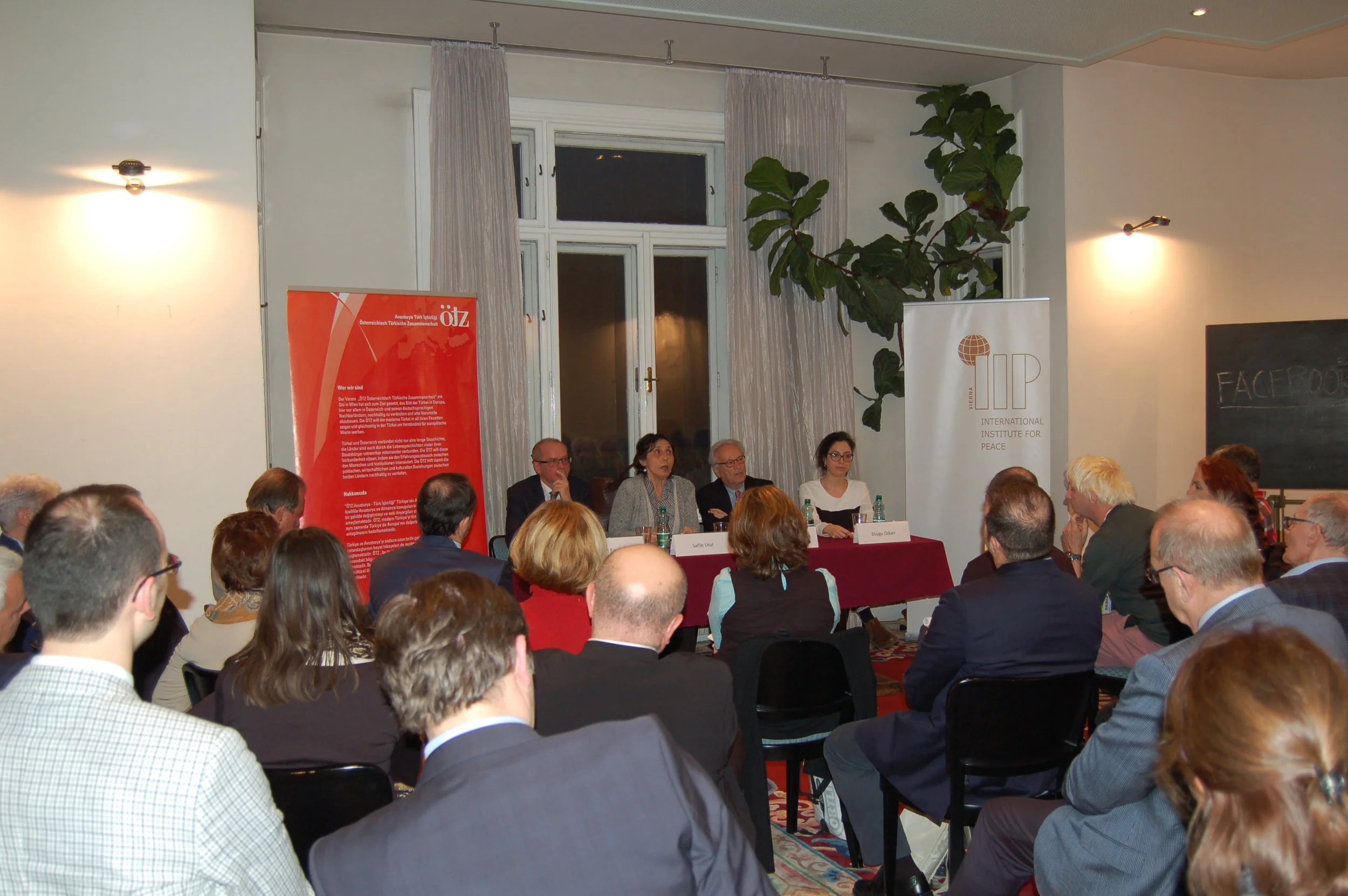After a rather tumultuous start, the Trump administration seems to face a shift in several key areas, especially when we consider the foreign policy. The escalation with North-Korea, the attitude towards Russia or the intervention in Syria and Afghanistan not only illustrate a certain continuity with Obama´s policy, but rather a determined implementation of it. Almost 100 days after the beginning of Donald Trump´s presidency, a panel of experts will discuss about the new U.S. foreign policy and its consequences on the European Union and on key regions such as the Middle East or the Balkans.
Ukraine: Economic relations across the contact line and the role of trade unions
Trade and economic exchange between Western Ukraine and the non-government controlled areas have come to a halt, which resulted in a situation of economic deprivation of the people in the non-government controlled areas. At the same time, the trade unions in Donetsk and Luhansk/Lugansk separated from the Ukrainian trade unions. Former trade union colleagues do not have official contact anymore.
The Future of Nuclear Weapons in Europe
The Russian Federation and the USA are modernising their non-strategic nuclear arms for Europe. Both are blaming the counter part for violating the INF-Treaty – the Intermediate Range Nuclear Forces Treaty, which came into force 30 years ago. Is there a new trend towards a larger role for nuclear weapons in European security? Is the Trump Administration receding from the vision of a nuclear-free world? Which challenges and risks arise for those who are putting efforts into the non-proliferation of nuclear weapons? Which consequences can be drawn for the recent negotiations about a nuclear-weapons-convention (NWC)?
The Future of the Iran Nuclear Deal in the New World
While the Joint Comprehensive Plan of Action (JCPOA) raised hope to be the beginning of an integration of Iran into the world community in 2015, this enthusiasm partly has waned nearly two years later. The difficult relations to many Arabic states – especially to Saudi Arabia, Donald Trump’s critical opinion about the JCPOA in general, the immigration ban and open threats regarding the Iranian rocket test as well as new tendencies to rising armament in NATO states pose new foreign policy challenges for Iran and the world community in general.
Report: Turkey and Austria - One Month before the Constitutional Referendum
The relationship between Turkey and Austria has not been as tense as today for a long time. Whereas the long common history of these two nations has forged a collective memory, diplomatic relations are challenged by current events, especially the Turkish constitutional referendum, which will be held on Sunday, 16 April 2017.
In addition to Turkey's significant role as a geopolitical platform for the Middle-East conflicts in Syria and Iraq, the country appears to be a key actor for a successful management of “the migration crisis” and an important partner for Austria and the EU.
The Challenges for the OSCE and the Role of the Parliamentary Assembly
The recent outbreak of violence in Eastern Ukraine made clear that this conflict will remain one of the most important challenges for the OSCE. The main task is to prevent further escalation and to push for the implementation of the Minsk Agreements. In a broader perspective, it is essential to rebuild trust in the OSCE and between its member states so that the largest pan-European security organisation will be able to play the role that it is assigned for. The Austrian Chairmanship is confronted with these manifold challenges. But what can be expected realistically within the next few months? What can the OSCE Parliamentary Assembly contribute to minimize tensions between member states and to reestablish cooperation and trust between members?
Esther Mujawayo: Surviving the Genocide in Rwanda
Military Interventions and EU-Solidarity: Between Prohibition of Force and Responsibility to Protect
In the last 15-20 years, military interventions into domestic conflicts have been named as ultima ratio to fulfil the so called Responsibility to Protect (R2P) or to execute one’s right to self-defence. In this debate we have to consider that there are UN Security Council authorized interventions, which are in compliance with international law and there are uni-or multilateral interventions, like the actual interventions of France, USA and Great Britain in Syria.
Modern Slavery and Human Trafficking
The IIP supports the Wiener Volkshochschule (VHS) in its efforts to foster and promote human rights and to take advantage of Vienna’s status as a Human Rights City, to which the Wiener Gemeinderat declared Vienna in December 2014 in order to reach and sensitize a great amount of people for diverse human rights issues.





